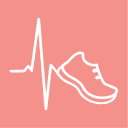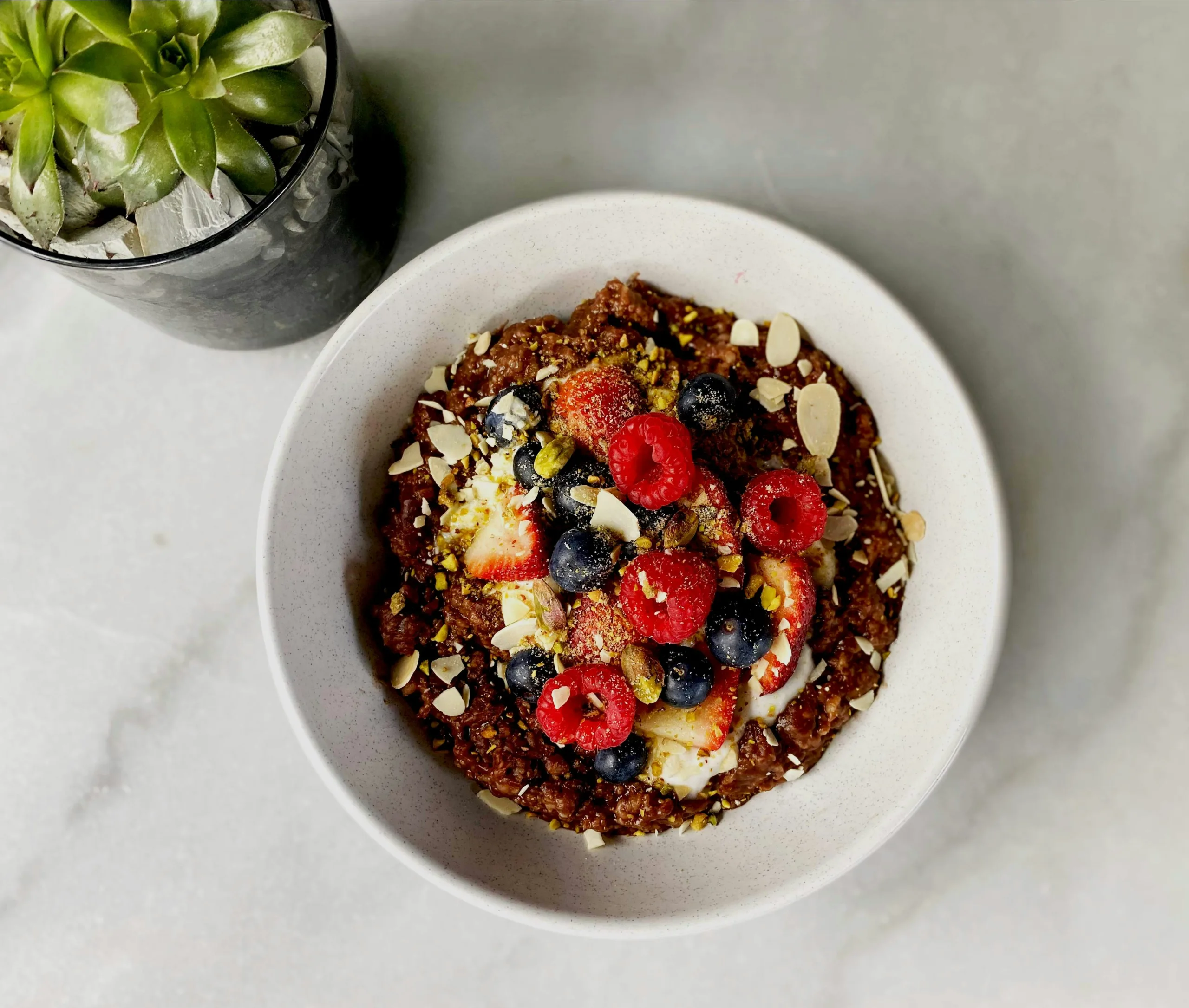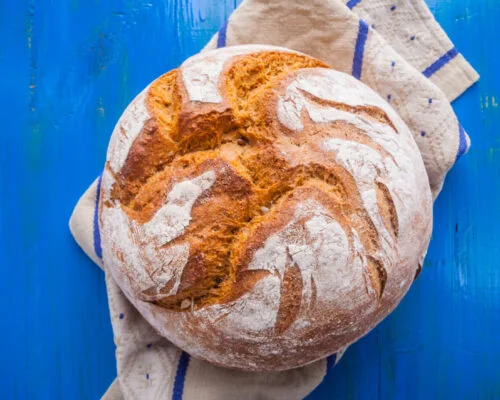I take your heart health seriously, no matter how young or old you are.
Heart disease is the No. 1 killer of women (and cause of total deaths in the United States), and whether you’ve been diagnosed with heart disease or not, that big red valentine in your chest needs some l-o-v-e and attention NOW.
I want to spend a minute empowering you to take control of your heart’s wellness. I know, I know, it’s more fun to talk about smoothie recipes or the latest diet fads or how eggs can make your hair shinier. But the reason so many people struggle with heart health in their later years is because they didn’t read this blog years before.
You know how you always see on Instagram “summer bodies are made in winter?” Well, healthy hearts are made NOW. So pay attention, peeps, young and old.
5 Tips for Better Heart Health No Matter How Young You Are
1. Eat Heart-Healthy Foods.
When I think of hearts, I think of love, and when I think of love, I think of a universal love… the love of food!
We all know by now that there is good research about how intimately connected the heart and food are. All of us should eat as though we have heart disease—or will have heart disease —because statistics tell us that 2,200 of us are dying every day from it. There is no glory in prevention. Sigh. But, there is in fact a huge prize if you really think about it: life.
Clients often come to me knowing what not to eat, like foods high in sodium, processed foods, and trans fats. You know, the “cut out the burger and fries” kind of thing. But what SHOULD you eat for a healthier heart? Whole real foods especially those high in fiber, healthy fats, and loads of veggies, especially greens. Incorporate quinoa, barley, oats, avocado, hemp, flax, walnuts, almonds, kale, broccoli rabe, and spinach. Eating healthy everyday is not as hard as you think.
2. Slim Yourself Down.
There’s nothing wrong with a little vanity. Wanting to look your best is not a crime, and as a health educator, I know that if I can get my clients to look and feel a little slimmer, their hearts will benefit tremendously. Basically, I don’t care what your reason is for considering heart health. Any reason will do.
Carrying around extra pounds makes the heart less efficient and more lethargic and compromises its ability to work. That’s a fancy way of saying your body works way harder to get you up that flight of stairs or play Matchbox cars on the floor with your kids or push that giant cart of groceries to your car when you’re overweight. Losing weight—as few as 10 pounds—can reduce cholesterol levels, decrease blood pressure, decrease the risk of heart attack and often reduces the need for medications. Oh and it can make all those things I mentioned wayyyyy easier.
You know I’m leading up to exercise, and that can be a total turnoff for people with a lot of weight to lose. Well, then, don’t call it exercise!
Instead, start with this: stand up when you would otherwise be sitting down during commercial breaks (or waiting for a doctor’s appointment or while on conference calls.) You burn 32 percent more calories standing than you do sitting. C’mon we all can do this! You don’t need to join a gym to get your sweat on. You can get rid of arm jiggle at the park, say buh-bye to extra booty using any old bench, or get fit from home.
3. Know the Research.
We’ve studied the heck out of fiber, sodium, and fats. We now know the importance of a high-fiber, low-sodium diet that is rich in good fats (mono- and polyunsaturated) and limited in trans and saturated fats to optimize your ticker.
Scientists are also taking a close look at the cellular level. Really exciting new research is uncovering the role of ubiquinol in heart health. Ubiquinol is the converted form of CoQ10, and it is found to promote heart health and maintenance of cardiovascular health. CoQ10 is found in eggs, beef, fish, raw vegetables like spinach, cauliflower, and broccoli, and unprocessed grains. I also love fatty fish for the omega 3 anti-inflammatory benefits.
4. Snack Wisely.
Experts agree that most Americans have to change their eating habits to achieve a healthy heart. We tell people to eat breakfast, choose more fruits and vegetables, limit unhealthy fats and adjust portions.
We also tell people to snack. In an effort to pull away from extreme hunger and overeating large meals, a little meal between meals is encouraged. As someone who looks at other people’s food choices all day long, I can tell you that everyone has their own unique habits and needs, but most people love the permission to snack.
There’s no such thing, however, as a “snack” food. Snacks should be real food just like breakfast, lunch, or dinner. A slice of turkey wrapped around asparagus or carrot sticks and hummus are great choices. If you need something that’s portable, throw an apple in your bag with a small handful (about 10-15) of nuts.
5. Take Stock in your Stock.
Knowledge is power. Take a minute to assess your heart health right this minute. Pull together the information you need to evaluate if you’re at risk for cardiovascular disease.
You should have current lab work that includes your cholesterol information. Have your blood pressure taken. Dig into your family history. Evaluate your alcohol consumption and of course, QUIT smoking if you smoke. Load it all into this free MayoClinic risk calculator and if you’re at risk, see your physician for active care or preventive and baseline information.
And, don’t forget stock your fridge with the foods discussed in this blog!






























